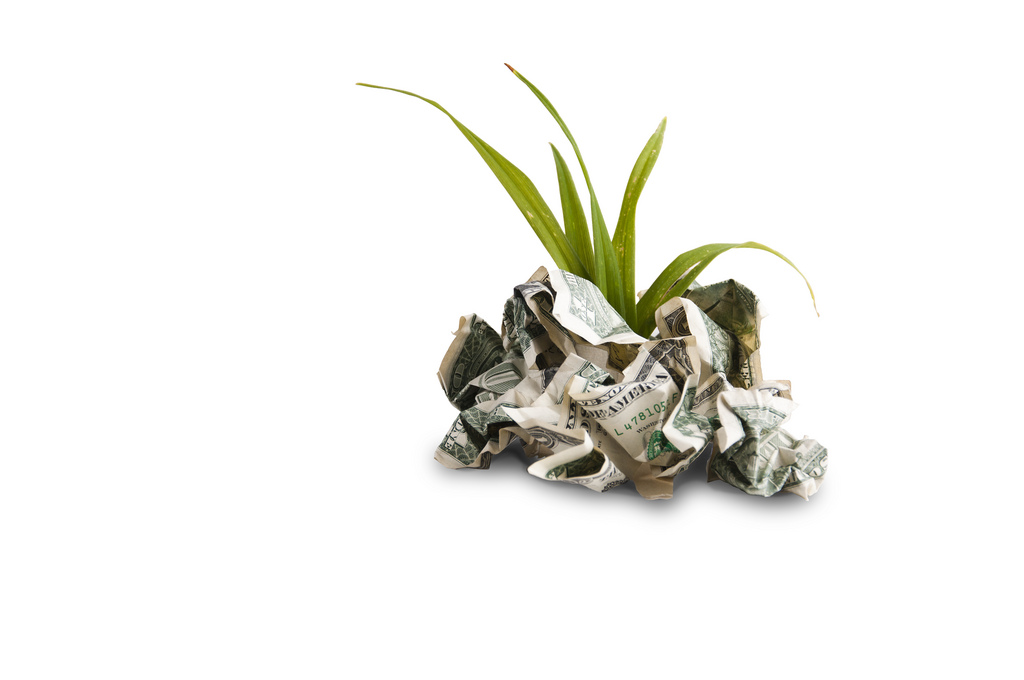
Money’s a horrid thing to follow, but a charming thing to meet. – Henry James
Several months ago, I realized that money makes a lot of people miserable. In our household, paying bills was a source of anxiety, and many of my friends were feeling a similar financial squeeze. An older friend came into a sizable sum of money, but it didn’t exactly bring him joy; he vexed over how he should invest it and whether it would be enough for retirement. Then two close friends got into a feud – and I suspected a monetary transaction was at the root of it.
That’s when someone introduced me to the concept of the gift economy, which Charles Eisenstein articulates in his book, Sacred Economics. His contention is that money has “contributed to alienation, competition, and scarcity, destroyed community, and necessitated endless growth.”
“One of the things I talk about,” says Eisenstein in a beautiful film about the book, “is the sense of wrongness that I had as a child. I think most kids have some sense that it’s not supposed to be this way. For example, that you’re not supposed to actually hate Monday and be happy when you don’t have to go to school. School should be something that you love. Life should be something that you love.“
Eisenstein and other gift economy proponents argue it’s time for us to move toward a non-monetary economy. “We didn’t earn any of the things that keep us alive or that make life good. … We didn’t earn being able to breathe. We didn’t earn having a planet that can provide food. We didn’t earn the sun. So I think that on some level people have this in-born gratitude. … In a gift economy, it’s not true the way it is in our money economy that everyone’s in competition with everyone else. In a gift economy when you have more than you need, you give it, and that’s how you receive status.“
Gift economics is compelling, and Sacred Economics, the book and film, are worth exploring. The Creative Commons, wikis, and open source are examples of successful gift economies in action, and I’m sure we’ll see many more in the future. Eisenstein says he tries to bring the ideal of a gift economy into his own life by, for instance, letting people pay whatever they wish for the materials he self publishes.
The chain Panera Bread has famously experimented with pay-what-you-can ideas, and locally, a few institutions are experimenting with gift economics. “We don’t sell anything,” the founder of a non-profit school told me. They do, however, actively fund-raise for monetary donations, which begs the question of how removed these institutions are (or can be) from the money economy.
On a personal level, I fear turning away from money would be as dysfunctional as chasing it. The gift economy seems to reflect something that many of us feel – an inner ambivalence about whether it is “good” to make money, to spend it, and to have material things. But money is here to stay. The question is: can making and spending it be a source of good in the world and in our lives?
Judy Wicks insists it can. I recently reviewed her memoir Good Morning, Beautiful Business for YES! Magazine. She opened Philadelphia’s famous White Dog Cafe, one of the first restaurants in the nation to feature local, organic, and humane food. The business made millions, which Wicks used to create sustainable business networks and build local economies across the country. “You can find a way to make economic exchange one of the most satisfying, meaningful, and loving of human interactions,” she writes.
Wicks inspired me to think about how I can transform earning, saving, and spending money into a more satisfying, joyful, and meaningful part of my life. To that end, I’ve been taking a moment when bills arrive to connect them with what I’m paying for. For instance, as I examine our electricity usage or mortgage bill, I remind myself of our warm, cozy, comfortable home, which brings us ample joy. I’m already noticing a new emotion arising when the postman drops off a stack of bills – gratitude.
I’ve also been exploring how I can use money to make the world better, even if in a micro way. I’m budgeting a little cash every month to give away anonymously. What a powerful exercise! I’m amazed by how hard it is to let go of cash. But it feels fabulous to use money, which is so often a source of discontent, to spread a little joy.
There’s no question that money and the pursuit of it causes a lot of misery and devastation in the world, but I hope I’m on my way to a healthier, more joyful relationship with it in my own life.
If you liked this post, you may enjoy these:
- Redefining Wealth
- Making Economic Exchange a Loving Human Interaction
- Ditch the Life Coach and Do the Daily Chores
- Should Towns Print Their Own Cash?
Do you feel conflicted about making and spending money? Have you found ways to make money a satisfying, joyful, and meaningful part of your life? I’d love to hear about it in the comments.